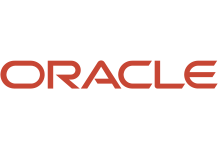- 087 941 5764
- impactful@lrmg.co.za


This course teaches developers how to create application using the SQL API and SDK for Azure Cosmos DB. Students will learn how to write efficient queries, create indexing policies, manage and provisioned resources, and perform common operations with the SDK.
Our courses have flexible delivery options:
This course is intended for:
Software engineers tasked with authoring cloud-native solutions that leverage Azure Cosmos DB SQL API and its various SDKs. They are familiar with C#, Python, Java, or JavaScript. They also have experience writing code that interacts with a SQL or NoSQL database platform.
Before attending this course, students must have:
Need additional information?
We are here to support your growth every step of the way
Get in touch
This course teaches developers how to create application using the SQL API and SDK for Azure Cosmos DB. Students will learn how to write efficient queries, create indexing policies, manage and provisioned resources, and perform common operations with the SDK.
Our courses have flexible delivery options:
This course is intended for:
Software engineers tasked with authoring cloud-native solutions that leverage Azure Cosmos DB SQL API and its various SDKs. They are familiar with C#, Python, Java, or JavaScript. They also have experience writing code that interacts with a SQL or NoSQL database platform.
Before attending this course, students must have:
Certified global best practices in the new technologies…




Please complete the form with your information and one of our experts will get back to you soon.

Get in touch
Email: impactful@lrmg.co.za
Tel: +27 87 941 5764